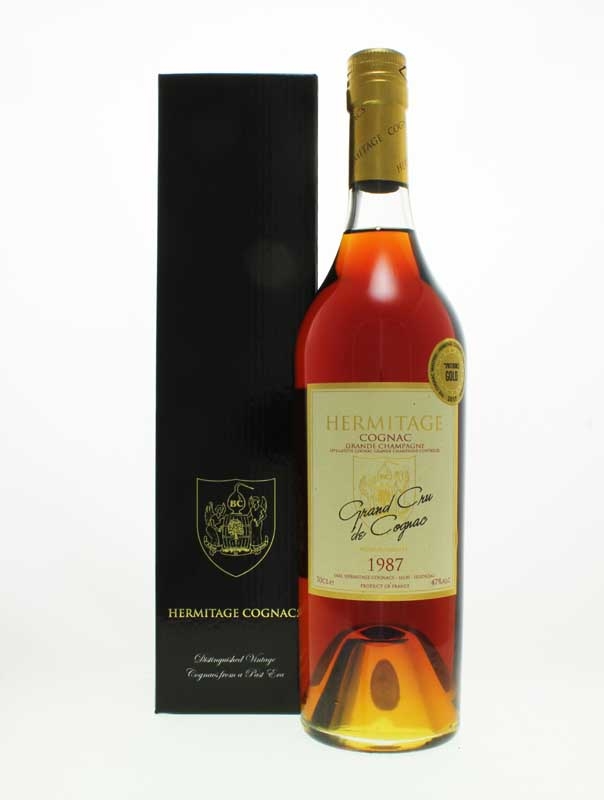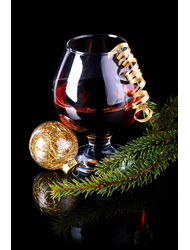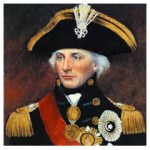The DOs and DON’Ts of Drinking Fine Cognac
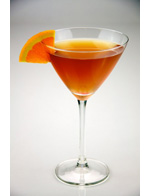 Adding Water or Mixers
Adding Water or Mixers
I wrote in my last Technical Topic about adding water to cognac, supposedly to enhance the flavour. Of course, we discovered that when drinking fine cognac, this is not the case. However, some people do like to add some form of mixer(s) to their brandy. For example, sugar and cream are added to change the flavour completely. In this instance, it is not a good idea to use an expensive cognac. Cognac is a rich drink and usually has a complexity of different flavours. This makes the experience of replicating an exact recipe more chance than judgement. Then there is this question of ice – but think about this. If water is difficult to mix with a spirit, a piece of solidified water is going to be even harder.
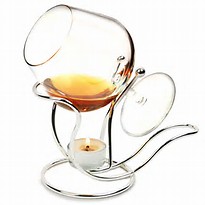 Adding Heat
Adding Heat
So, you ask, why don’t we warm cognac to enhance the flavour? Well, you can, but we don’t drink cognac like wine. Big mouthfuls are a rarity as the strength of cognac is three times that of wine and a small sip quickly develops to body temperature. We have been asked on many occasions about the use of brandy warmers and before we dump this silly idea, let me just explain. Driving the alcohol off by heating the cognac will, in most cases, totally destroy the flavour as the alcohol acts as a flavour carrier. When a cognac has ‘gone off’, it is because the alcohol has laminated from the spirit. This means that it sits on the surface of the cognac and escapes as soon as somebody releases the cork. Where this has happened, one never needs to ask if it has gone off!
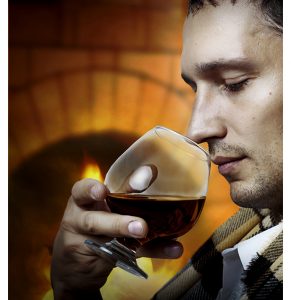 When to Drink?
When to Drink?
Much of the real appreciation of a fine cognac comes by tasting it at the time of day when one’s taste buds are at their most receptive, usually around 11am – noon. Some people prefer to taste cognac as an aperitif before a meal. Certainly, it makes some sense to taste cognac as opposed to whisky before a meal if you are also drinking wine as one doesn’t mix grape and grain. But for me, when looking for a small digestif to finish off a nice meal, drinking fine cognac is the best way to recapture the enjoyable events of the day.

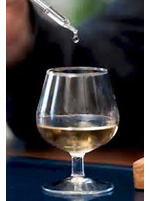 We read in the papers that Swedish scientists claim to have found proof that adding water to whisky will make it tastier. To be fair to Professor Bjorn Karlsson, who led the research, he does say that the balance will depend on the concentration and taste compounds that are characteristic of each whisky. However, it is also claimed that, similar considerations can be used to optimise the alcohol concentrations of other spirits including gin, rum and brandy. Drinking cognac with water is certainly a topic for discussion.
We read in the papers that Swedish scientists claim to have found proof that adding water to whisky will make it tastier. To be fair to Professor Bjorn Karlsson, who led the research, he does say that the balance will depend on the concentration and taste compounds that are characteristic of each whisky. However, it is also claimed that, similar considerations can be used to optimise the alcohol concentrations of other spirits including gin, rum and brandy. Drinking cognac with water is certainly a topic for discussion. Whisky is of course different from cognac both in taste and chemically. Cognac can provide thousands of different flavours as it is the result of a wine distillation rather than distillation from grain. However, taste is not the complete sensation as aroma also provides a fuller mind perception which enhances our enjoyment of cognac. It is believed that 50% of the perception of taste comes from the aroma. Sometimes aroma can be blinded by the alcohol content but the addition of water can also dilute the aroma and hence the total enjoyment. Conversely, some cognacs are enhanced by a greater alcohol content. Good examples are our
Whisky is of course different from cognac both in taste and chemically. Cognac can provide thousands of different flavours as it is the result of a wine distillation rather than distillation from grain. However, taste is not the complete sensation as aroma also provides a fuller mind perception which enhances our enjoyment of cognac. It is believed that 50% of the perception of taste comes from the aroma. Sometimes aroma can be blinded by the alcohol content but the addition of water can also dilute the aroma and hence the total enjoyment. Conversely, some cognacs are enhanced by a greater alcohol content. Good examples are our 